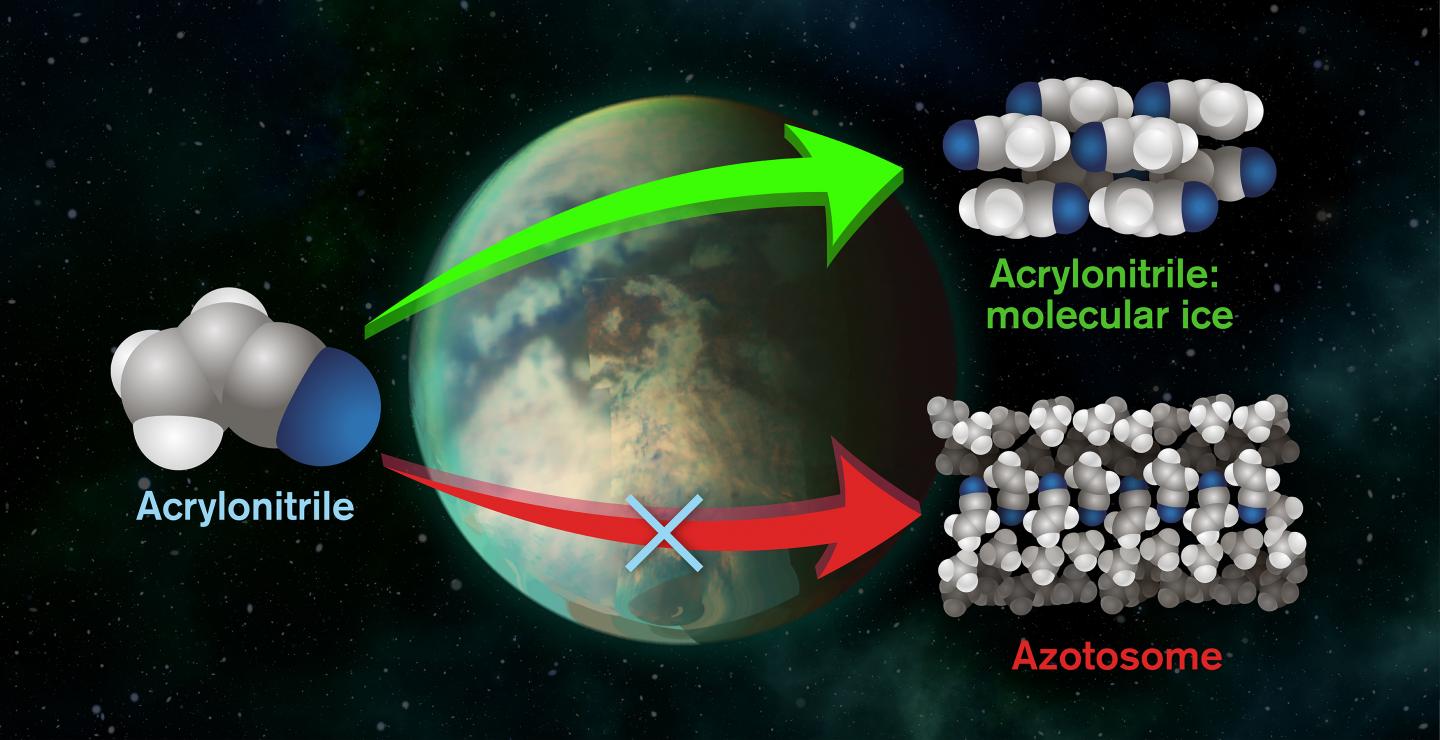Bad news for life on Titan – or not?
So that life as we know it can emerge, it must be able to differentiate itself somehow from its environment. Therefore, every cell needs a shell that allows nutrients to pass through it from the outside, but nevertheless protects the cell’s insides from the outside world. On Earth, cell membranes perform this function and are made from lipids, hydrocarbon compounds that include, among other things, fatty acids.
On Saturn’s moon, Titan, it is much too cold, at an average temperature of -180 °C, for the formation of lipids. But there is a different class of substances there that astrobiologists had hoped could take on the function of lipids: acrylonitrile. Molecules of this substance could combine to form so-called azotosomes, whose properties are similar to those of lipids. In fact, it has already been shown that azotosomes could exist on Titan – and there was no lack of its starting material, acrylonitrile.
Now, unfortunately, we’ve gotten a bit of bad news: in a new paper in Science Advances, two Swedish researchers have shown that azotosomes would not form at all under the conditions on Titan. More precisely, acrylonitrile can also assume a different form – a molecular ice – and this form would be much more likely, because azotosomes require an amount of energy to form each molecule that is simply not available on Titan. Much less energy is needed for the crystallization into molecular ice, so that would also be the much more likely process to occur.
This doesn’t mean we have to give up all hope for life on Titan just yet, as the researchers also noted. Hypothetically, there might also be biomolecules there in solid form and thus wouldn’t have the risk of dissolving into their surroundings like on Earth. Thus, they might not even need a cell membrane at all. Therefore, because the molecules on Titan wouldn’t be mobile, they would have to wait for small, energy-giving molecules like hydrogen or acetylene to come to them, like a plant on Earth. For that, a membrane would even be an added obstacle. The waste products from the cell’s metabolic process would be subject to similar circumstances and could be better removed from the cell if there were no cell membrane to begin with. “One can therefore ask whether having cell membranes would even provide any benefit under these conditions,” explains Martin Rahm, one of the two researchers.
